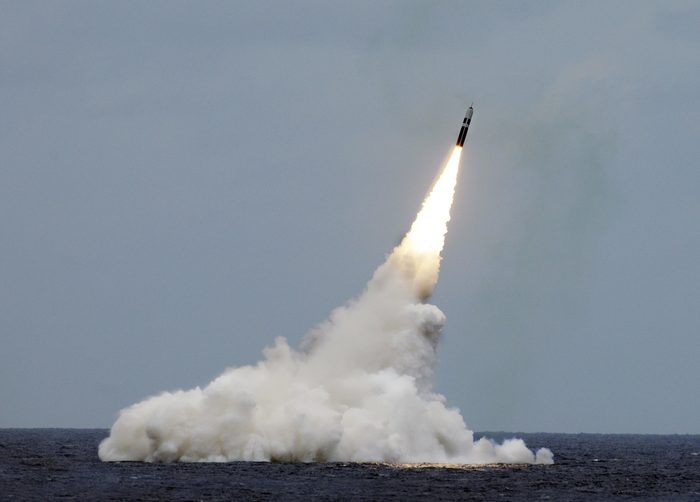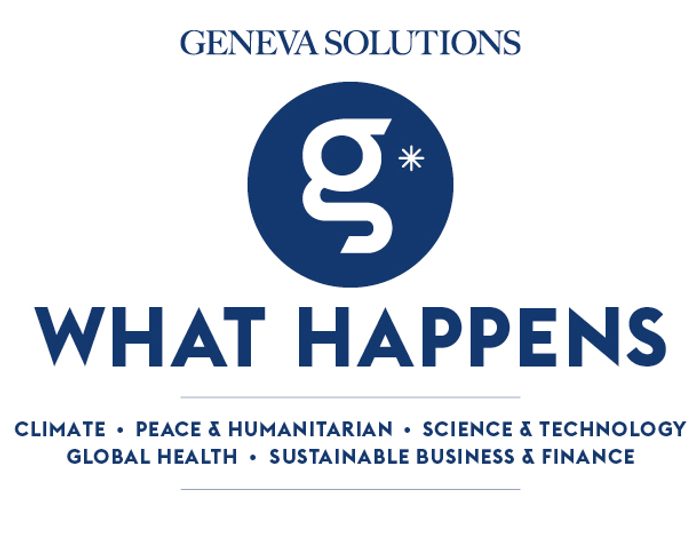Good morning, this is Gabriela. Six years after a landmark ban on nuclear weapons was adopted at the UN, the world’s nine nuclear-armed powers continue to spend massively on beefing up their arsenals. In its most recent report, anti-nuke campaigner and Nobel prize winner ICAN sheds light on the companies and entities benefitting from this trend.
The UN has taken a crucial step in preventing a catastrophic oil spill off the coast of war-torn Yemen and the UN’s envoy in Myanmar is raising the alarm as the authorities raise hurdles for aid workers to travel to Rakhine state following a disastrous cyclone which has gravely impacted the Rohingya minority. |

|

An unarmed Trident II D5 missile launching from the Ohio-class fleet ballistic-missile submarine USS Maryland (SSBN 738) off the coast of Florida, USA. Trident missiles are submarine-launched ballistic missiles that are armed with nuclear warheads, 31 August 2016. (Keystone/SciencePhoto LibraryiJohn Kowalski/US Department of Defence)
|
|
Defence, airplane companies and think tanks cash in amid nuclear weapons splurge, watchdog warns.
The world’s nine nuclear-armed countries continued to spend massively on weapons of mass destruction last year, as they pursued plans to modernise and beef up their existing nuclear arsenals even throughout the Covid and climate crises.
As spending on nukes rose for the third time last year, a new report by the International Campaign to Abolish Nuclear Weapons (ICAN) zeroes-in on the role played by the world’s leading aerospace businesses, as well as that of prestigious think tanks, in maintaining the nuclear status quo.
Geneva Solutions (EN)
|
|
Here’s what else is happening
|
|
GS news is a new media project covering the world of international cooperation and development. Don’t hesitate to forward our newsletter!
Have a good day!
|

|
|
Avenue du Bouchet 2
1209 Genève
Suisse
|
|
|
|








